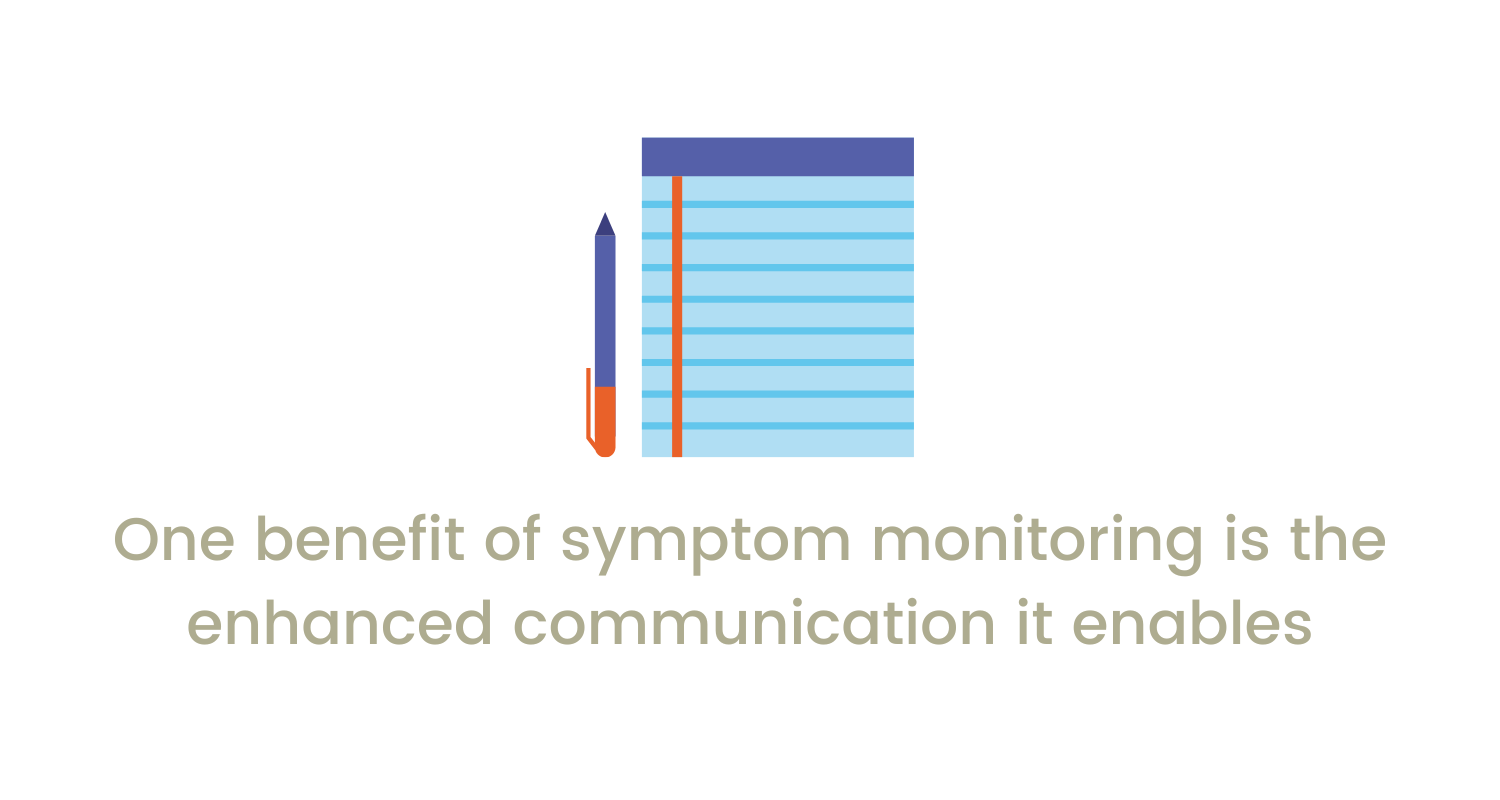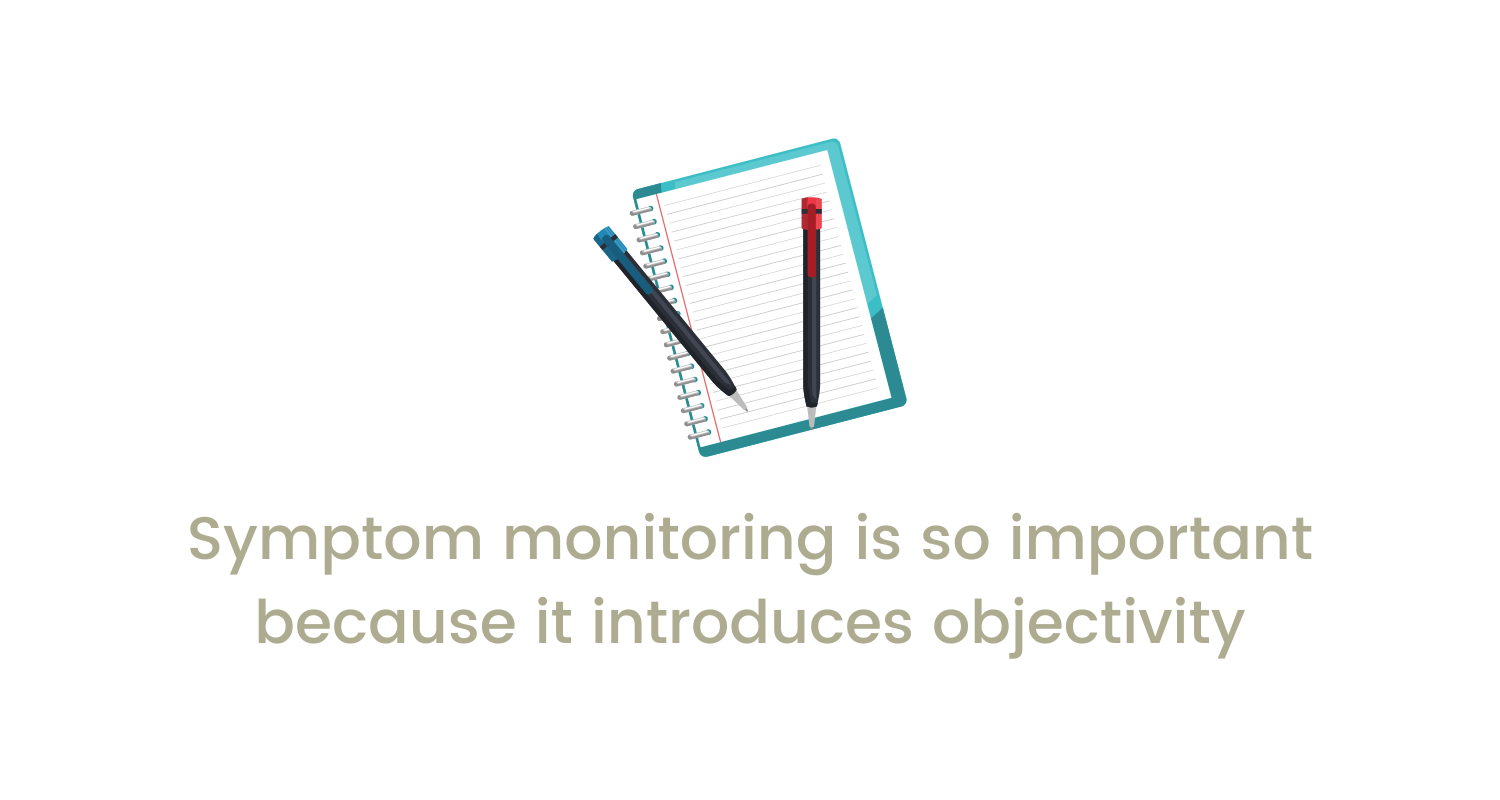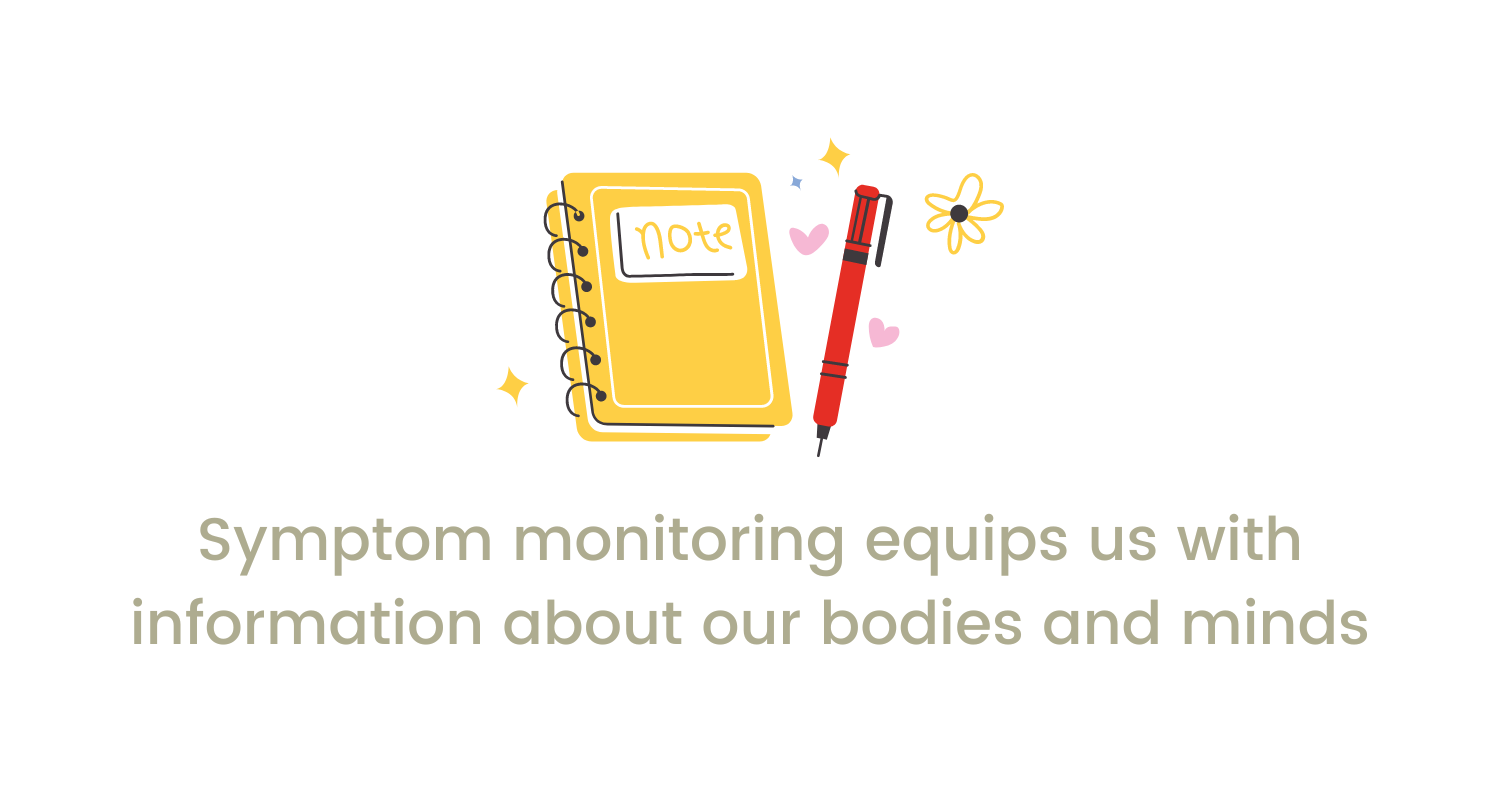11 Benefits of Tracking Symptoms In Mental Health
At Chartam, we are passionate about advancing the quality of care you provide to your patients. That's why we've introduced a powerful tool to enhance your patients’ mental health journey - our innovative Mental Health Planner.
We believe that tracking symptoms is key to understanding mental well-being. Our Mental Health Planner empowers patients to take an active role in their mental health management. By recording symptoms, moods, triggers, and coping strategies, the patient can create a comprehensive picture that guides their clinician’s methods of treatment and recovery.
Symptoms and habits play a significant role in our overall well-being, and understanding them can be a game-changer in treatment effectiveness. By tracking your symptoms, clinicians can gain valuable insights into a patient’s daily routines, behaviors, and lifestyle factors that impact their life.
The journey of mental health is a deeply personal one, characterized by the intricate interplay of emotions, thoughts, and behaviors.
In a world that often focuses on the visible, the intangible struggles faced within our minds can sometimes remain hidden. Yet, there's a powerful tool that can bring these struggles to light, validating experiences, fostering understanding, and enabling proactive self-care: tracking mental health symptoms.
In this increasingly interconnected and digital age, the practice of symptom tracking has extended its reach beyond physical health concerns. It has become an invaluable resource for individuals seeking to manage their mental well-being.
We need to delve into the profound benefits of tracking mental health symptoms, from offering validation to empowering self-advocacy, and from enhancing communication to guiding effective interventions.
Join us as we explore how this practice transcends the boundaries of stigma and skepticism, ushering in a new era of mental health awareness and empowerment.
Table of Contents
Early Detection and Intervention
Improved Communication with Healthcare Providers
Assessing the Impact of Treatments
Early Detection and Intervention
In the journey towards maintaining good health, one often hears the adage "prevention is better than cure." But how can we truly embody this principle in our lives?
The answer lies in the practice of regularly monitoring our symptoms. By paying close attention to how our bodies communicate with us, especially when it comes to mental illness, we can catch mental illnesses in their early stages, allowing for timely intervention and treatment before they get out of hand.
Imagine having the ability to foresee depression or anxiety-related issues before they escalate into primary concerns, leading to a stay at a hospital’s psychiatric ward. This is precisely what symptom monitoring offers.
By observing and recording even subtle changes in our mood, we create a valuable record that can reveal patterns and anomalies over time. Catching new symptoms or changes early on provides a crucial window of opportunity for intervention.
Many health conditions like anxiety and depression, when detected in their initial phases, can be effectively managed or even reversed. Identifying these signs allows clinical professionals to tailor interventions that prevent these conditions from progressing into more serious states.
Data-Informed Decision-Making
In a world where we track steps, sleep, and even spending habits, why not extend this practice to our mental health?
Symptom tracking entails the systematic recording of various physical, emotional, and cognitive experiences. These records, when amassed over time, create a comprehensive dataset that mirrors your body's responses to diverse situations, environments, and stimuli.
This data-driven approach opens a gateway to understanding the nuanced relationship between your well-being and various factors.
Improved Communication with Healthcare Providers
One of the most significant benefits of symptom monitoring is the enhanced communication it enables between individuals and their therapists and mental health clinicians. Medical consultations become more productive and insightful when patients can provide detailed records of their symptoms, evolution, and any accompanying factors.
These records aid in accurate diagnosis and streamline the treatment process. Healthcare providers can make informed decisions based on the trends and patterns evident in the symptom logs.
This level of collaboration between patients and providers often results in more personalized and effective treatment plans.
Quantifying Progress
When it comes to our health, it's easy to rely on how we feel to determine progress. But feelings can be subjective and influenced by various factors.
That’s why symptom monitoring is so important. It is a practice that introduces objectivity into the equation.
By meticulously recording your symptoms, their frequency, intensity, and duration, you create a tangible record of your health journey. This record becomes a reference point that transcends emotions, offering concrete evidence of how your condition is evolving.
Imagine having a progress report for your mental health—an evidence-based summary of how you're faring on your wellness journey. Symptom monitoring provides exactly that.
Over weeks, months, or even years, you build a comprehensive dataset that illustrates the trajectory of your condition.
This historical context is invaluable. It allows you to spot trends, recognize fluctuations, and pinpoint periods of improvement or decline.
Personalized Treatment
No two individuals are exactly alike. Treatment plans should be as unique as the patients.
The treasure trove of data amassed through symptom tracking forms the foundation for personalized treatment strategies. By understanding your unique symptom patterns, your healthcare provider can tailor interventions that address your specific needs, preferences, and goals.
This customized approach not only enhances the effectiveness of treatments but also reduces the risk of trial-and-error approaches.
Symptom tracking, in essence, transforms healthcare from a one-size-fits-all model to a precision-based, patient-centric paradigm.
Assessing the Impact of Treatments
Trying new treatments or interventions is often a pivotal juncture in health management. Symptom monitoring equips you with a valuable tool to assess the effectiveness of these endeavors.
As you embark on a new treatment plan, you can track how your symptoms respond. Are they subsiding? Are they stabilizing? Or are they worsening? These questions are no longer answered with guesswork; instead, they find their answers in the data you've meticulously collected.
Identification of Triggers
In the intricate landscape of mental health, understanding, and managing triggers is an essential aspect of healing.
For conditions like Post-Traumatic Stress Disorder (PTSD), where triggers can evoke distressing responses, the practice of symptom tracking takes on profound significance. By meticulously monitoring symptoms, individuals gain a unique window into their triggers, enabling them to make informed lifestyle adjustments that diminish exposure and alleviate symptom occurrences.
One of the most powerful outcomes of symptom tracking is the ability to identify triggers with precision. By closely examining symptom occurrences, individuals can discern which situations, environments, or stimuli lead to distressing responses. This knowledge empowers them to take proactive steps to minimize exposure to these triggers.
For instance, if crowded spaces consistently trigger anxiety and panic attacks, an individual can choose to avoid such situations whenever possible. If certain sounds evoke traumatic memories, creating a plan to manage encounters with those sounds becomes feasible.
Understanding Patterns and Causes
The power of symptom tracking becomes evident when you begin to notice patterns and trends that might otherwise remain hidden. Through consistent monitoring, you can identify recurring symptoms, fluctuations in their intensity, and potential triggers.
Imagine discovering that your energy levels dip on days following high-sugar meals or that your anxiety levels spike during certain periods of the month. Such revelations provide a holistic view of your health landscape, enabling you to take proactive steps.
With this newfound knowledge, you can adapt your routine, diet, or environment to mitigate the impact of triggers and foster a healthier mind.
Empowerment Through Knowledge
Knowledge is power, and symptom monitoring equips us with a wealth of information about our bodies and our minds. This information empowers us to make educated decisions about our health and lifestyle.
As we become attuned to our body’s responses, we can make informed choices about nutrition, exercise, stress management, and sleep. By understanding how certain habits impact our symptoms, we can proactively adopt practices that promote overall well-being.
Motivation and Self-Care
There's something inherently motivating about seeing progress unfold before our eyes. Symptom tracking offers this gift of visual progress.
As days turn into weeks and weeks into months, the recorded data paints a vivid picture of how our health is evolving. We witness the reduction of certain symptoms, the stabilization of others, and the impact of lifestyle adjustments.
This visual representation fuels a sense of accomplishment and spurs us to continue on the path of proactive health management. As we witness improvements, no matter how small, we're motivated to persist in our efforts and explore new strategies for enhancing our well-being.
Self-care isn't a luxury—it's a fundamental pillar of overall wellness. Symptom tracking infuses self-care with purpose and direction. As we log our symptoms and make connections between our behaviors and their effects, we're compelled to prioritize self-care practices that nurture our health.
For example, noticing that stress triggers a chain reaction of symptoms might prompt us to explore stress-reduction techniques such as mindfulness, meditation, or exercise. This data-driven approach transforms self-care from a sporadic indulgence into a deliberate strategy for managing our well-being.
Research and Documentation
Research studies and clinical trials are essential for unraveling the complexities of various mental health conditions and developing more effective treatment approaches.
Symptom tracking data collected from individuals who participate in such studies become a treasure trove of insights. Researchers can analyze this data to identify patterns, correlations, and trends that might otherwise go unnoticed.
When participants diligently record their symptoms, they provide researchers with a rich dataset that offers a holistic view of their condition. This data becomes a building block for advancing medical understanding, potentially leading to breakthroughs in diagnosis, treatment, and management strategies.
Symptom tracking data isn't just a collection of individual experiences—it's a canvas to paint patterns and trends.
As researchers analyze the data, they might uncover correlations between certain symptoms, triggers, and responses. These insights can provide a deeper understanding of the underlying mechanisms of a condition, guiding researchers toward novel avenues of exploration.
Conclusion
In the quest for self-care and well-being, symptom tracking emerges as a pivotal practice that empowers you to take charge of your mental health journey.
As we've explored the myriad benefits of this practice, from fostering understanding to enhancing communication, you might be wondering how to best integrate it into your daily life. That's where Chartam’s Mental Health Planner comes in—a unique and easy-to-use tool designed to amplify the positive impacts of symptom tracking.
Imagine having a dedicated space to record your thoughts, emotions, and symptom patterns. Our Mental Health Planner is more than just a planner; it's a comprehensive companion tailored to your mental well-being needs. With its structured templates, insightful prompts, and space to track your progress, it transforms the act of symptom tracking into a seamless and empowering experience.
But that's not all—the Mental Health Planner also provides a space for reflection and goal-setting. It's a holistic approach to mental well-being that empowers you to not only understand your experiences but also take proactive steps toward your emotional growth and resilience.
Don't miss the chance to harness the power of Chartam’s Mental Health Planner as your ally in your mental health journey. Elevate your self-care practices, build a deeper connection with yourself, and navigate life's challenges with newfound clarity and strength. Click here to learn more about how the Mental Health Planner can become an invaluable asset on your path to lasting well-being. Embrace the journey of self-discovery, one organized and empowering step at a time.












